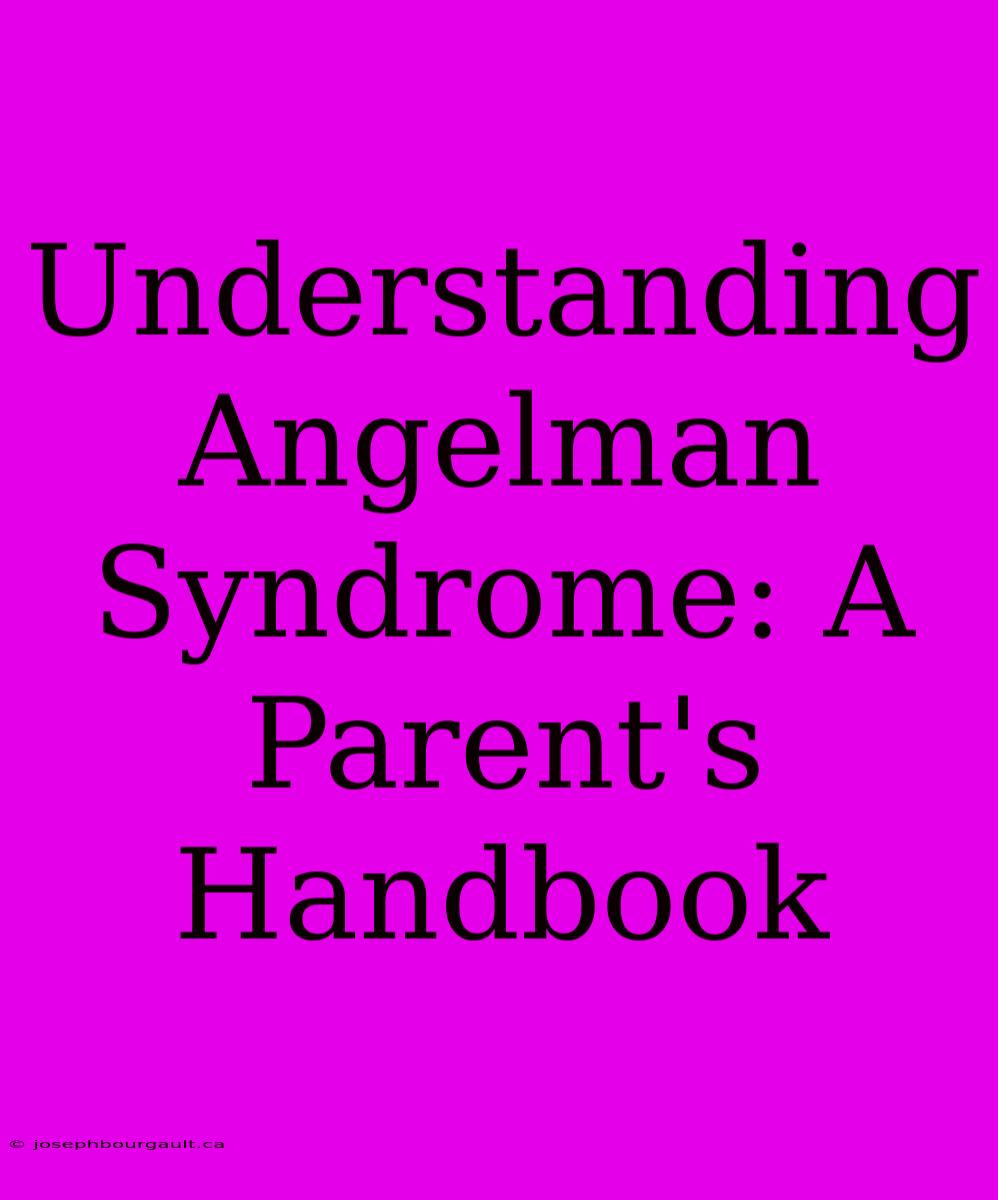Understanding Angelman Syndrome: A Parent's Handbook
Angelman syndrome is a rare genetic disorder that affects the nervous system. It is characterized by a wide range of symptoms, including developmental delays, intellectual disability, speech impairment, and behavioral challenges. This handbook aims to equip parents with the information they need to understand and navigate the journey with their child diagnosed with Angelman syndrome.
What is Angelman Syndrome?
Angelman syndrome is caused by a genetic mutation on chromosome 15. This mutation affects the production of a protein called UBE3A, which is essential for proper brain development. The syndrome affects approximately 1 in 12,000 to 1 in 20,000 births.
Recognizing the Signs
Angelman syndrome often presents with a unique set of symptoms. Parents should be aware of the following:
- Developmental Delays: Children with Angelman syndrome typically exhibit significant delays in motor skills, language development, and cognitive abilities.
- Intellectual Disability: While the severity varies, most individuals with Angelman syndrome have a mild to moderate intellectual disability.
- Speech Impairment: Many individuals with Angelman syndrome struggle with verbal communication and may use limited vocabulary.
- Behavioral Characteristics: Children with Angelman syndrome often have a happy and excitable disposition with frequent laughter and smiling. They may also display hyperactivity, attention deficits, and a fascination with water.
- Physical Features: Some individuals with Angelman syndrome may have characteristic facial features, including a small jaw, a wide mouth, and widely spaced eyes.
Diagnosis and Management
A genetic test is necessary to confirm the diagnosis of Angelman syndrome. The process may involve a blood test or a chromosome analysis. Management often involves a multidisciplinary approach, including:
- Early Intervention: Early intervention programs can help children with Angelman syndrome develop skills and reach their full potential.
- Therapy: Speech therapy, occupational therapy, and physical therapy can address communication, motor, and cognitive challenges.
- Behavioral Support: Behavioral interventions can help manage behavioral difficulties and promote positive social interactions.
- Medication: While there is no cure for Angelman syndrome, medications can be used to address specific symptoms, such as seizures and anxiety.
Support and Resources
Parents of children with Angelman syndrome can find valuable support and resources from organizations like:
- The Angelman Syndrome Foundation: Provides information, resources, and support for families affected by Angelman syndrome.
- The National Angelman Syndrome Foundation: Offers research, education, and advocacy for the Angelman syndrome community.
- Angelman Syndrome Support Groups: Offer a platform for parents to connect with others who understand the challenges and joys of raising a child with Angelman syndrome.
The Journey Ahead
Raising a child with Angelman syndrome can be challenging, but it is also incredibly rewarding. These children have a unique spirit and bring joy to their families. Parents should remember that they are not alone in this journey. There is a vast network of support available to help them navigate the challenges and celebrate the triumphs along the way.
Remember:
- Early intervention is crucial. Seek help from qualified professionals as soon as possible.
- Connect with other families. Share experiences and learn from each other.
- Advocate for your child. Be their voice and ensure they receive the care they need.
- Celebrate their unique abilities. Embrace their strengths and talents.
Living with Angelman syndrome can be a journey filled with both challenges and rewards. By understanding the condition, seeking support, and advocating for their children, parents can help their children live happy and fulfilling lives.

